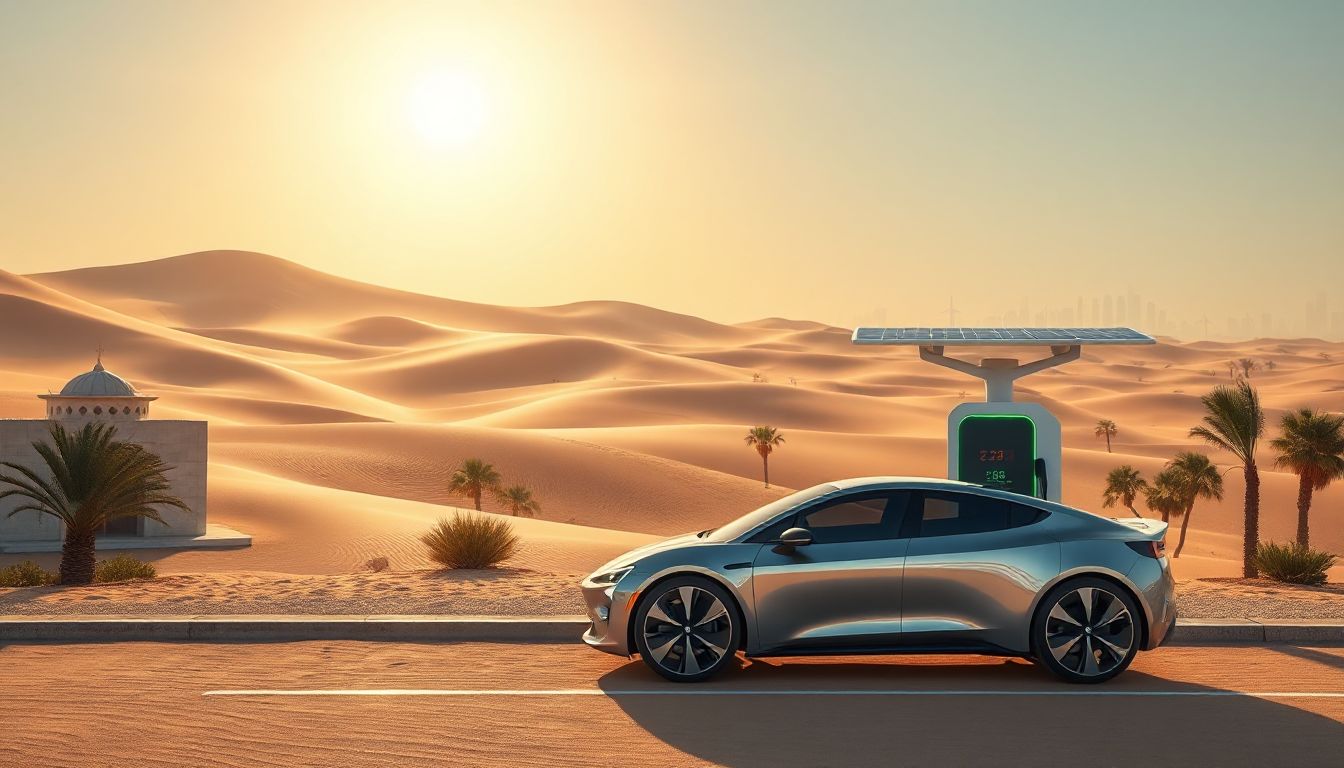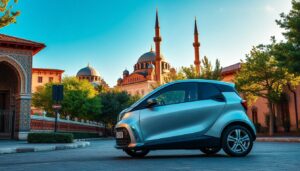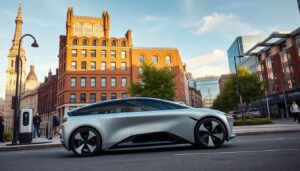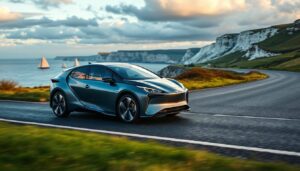Introduction
The global shift toward electric vehicles (EVs) is impossible to ignore. As countries work to cut emissions and boost sustainability, EVs are becoming more popular. Saudi Arabia is not left behind. The kingdom’s Vision 2030 stresses the need for economic diversification and less reliance on oil. Increasing investments in EV infrastructure show that Saudi Arabia is serious about this change. New charging stations, policies, and partnerships are shaping the future of electric mobility in the country. This article explores the current state, future prospects, hurdles, and opportunities for EVs in Saudi Arabia.
The Current State of Electric Vehicles in Saudi Arabia
Market Overview and Adoption Rates
Compared to neighboring countries and the world, EV adoption in Saudi Arabia is still in its early stages. However, signs of growth are clear. Recent stats show that EV registrations are rising steadily—by over 25% year over year. Consumers and businesses alike are seeing EVs as an option. Cost savings, environmental benefits, and government support drive early adoption. Urban centers like Riyadh and Jeddah lead the way with the most registered EVs.
Government Policies and Incentives
Saudi Arabia has rolled out policies aimed at encouraging EV use. These include reduced registration fees, tax breaks, and special tariffs. The government wants to make EVs more affordable for residents and companies. Initiatives like the Saudi Green Initiative and goals under Vision 2030 push towards a greener future. These policies are part of a larger plan to cut carbon emissions and promote renewable energy.
Infrastructure Development and Charging Networks
The kingdom is building a network of charging stations in major cities—especially along highways connecting Riyadh, Jeddah, and Dammam. Private companies, international automakers, and government agencies collaborate on installing these stations. Still, expanding beyond cities remains a challenge. Rural areas and remote regions have fewer charging options, slowing widespread EV adoption.
Key Drivers Accelerating EV Adoption in KSA
National Vision 2030 and Sustainability Goals
Saudi Arabia’s long-term plans emphasize sustainability. EVs fit into this vision perfectly. The country aims to lower carbon emissions and use more renewable energy for charging EVs. This shift presents new economic opportunities outside of oil exports, making EVs a part of the kingdom’s future.
Investment and Industry Partnerships
Big auto makers and local firms are investing heavily in Saudi Arabia. Some auto giants, like Nissan and Hyundai, are setting up regional centers. Aramco is partnering with automakers to develop EV infrastructure and explore clean energy solutions. These partnerships boost confidence and drive innovation in the local market.
Rising Consumer Awareness and Market Demand
Today’s consumers are more aware of EV benefits. From saving money on fuel to helping the environment, interest is growing. Younger generations and expatriates play a big role. The desire for modern, eco-friendly vehicles pushes demand higher. This shift is changing market dynamics fast.
Technological Advancements and Cost Reductions
Battery technology is improving rapidly. Vehicles now go farther on a single charge and cost less than before. As prices drop, more people consider switching from traditional cars. This evolution makes EVs more accessible and appealing for a wider audience.
Challenges Facing Electric Vehicles in Saudi Arabia
Infrastructure and Accessibility Limitations
Charging stations remain unevenly distributed. Outside urban areas, finding a station can be tough. Without enough charging points, many drivers hesitate to buy EVs. Standardization is also needed for chargers to work across brands and regions, which is still a work in progress.
High Initial Costs and Market Penetration Barriers
EVs often cost more upfront than conventional cars. Limited local manufacturing raises import costs, adding to the sticker price. Cheaper gasoline cars are still the preferred choice for many Saudis. This price gap makes adoption slower.
Consumer Perceptions and Cultural Factors
Many drivers worry about vehicle range and repairs. Some still see internal combustion engines as more reliable. There’s also an ingrained preference for traditional cars, making it hard to shift habits overnight. Overcoming these perceptions takes time and education.
Regulatory and Policy Gaps
Saudi Arabia lacks a clear, comprehensive EV-specific policy. Long-term incentives and support mechanisms are missing or unclear. Without solid policies, manufacturers and consumers may hesitate to commit fully to electric options.
Opportunities and Future Outlook for EVs in KSA
Expansion of Charging Infrastructure and Renewable Energy Integration
Developing faster chargers powered by solar and wind energy offers big potential. Imagine charging your EV at stations that are 100% renewable. Smart grid projects can also help better manage energy, making EV charging more efficient and greener.
Growth of Local Manufacturing and Ecosystem Development
Setting up local assembly plants for EVs could reduce costs and create jobs. Encouraging startups and local innovation can lead to new services—like EV maintenance, battery swapping, and more efficient charging solutions. Building this ecosystem boosts Saudi Arabia’s role in regional EV markets.
Strategic Industry and Market Trends
Current investments suggest strong growth in EV sales in the coming years. As infrastructure improves and prices drop, more buyers will jump in. The Middle East’s strategic location makes Saudi Arabia a potential hub for expanding EV markets across the region.
Actionable Tips for Stakeholders
- Government: Strengthen policies, offer incentives, and build more charging stations, especially in rural areas.
- Automakers: Offer models suited for Saudi drivers—like bigger batteries or off-road options—and improve after-sales service.
- Consumers: Keep updated on incentives, calculate total ownership costs, and explore charging options at home or work.
Conclusion
Electric vehicles are transforming Saudi Arabia’s transportation scene. With strategic investments, supportive policies, and growing awareness, EVs are set to become more common on the roads. The kingdom’s focus on sustainability and diversification shows that EV adoption is more than just a trend—it’s a shift towards a cleaner, more sustainable future. If Saudi Arabia keeps pushing forward, it could become a regional leader in electric mobility. Embracing EVs aligns perfectly with the nation’s goals, creating a cleaner tomorrow for everyone.




